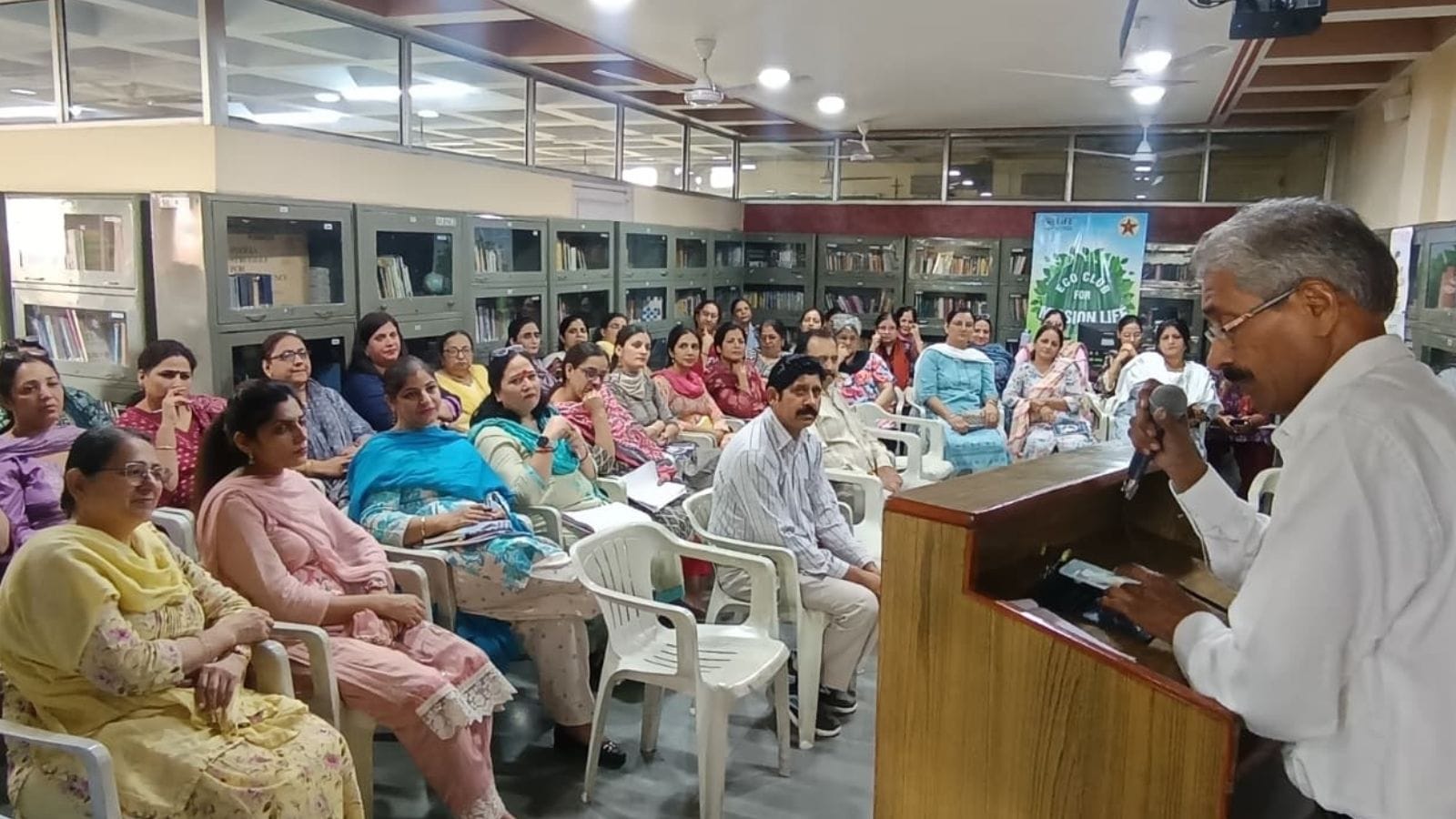Renowned environmentalist and herbal awareness crusader Om Parkash is leading a quiet green revolution, one rooted in India’s ancient Ayurvedic heritage. A former principal coordinator of Eco Clubs with the Chandigarh Department of Environment, he has dedicated years to cultivating herbal gardens and promoting plant-based literacy across Punjab, Chandigarh, and Mohali.
In an attempt to further spread awareness about the responsible and informed use of medicinal plants in daily life, St. Stephen’s School, Chandigarh, organised a Herbal Literacy Workshop.
The event opened with the school’s Principal John Xavier’s address. He urged participants to expand the definition of literacy to include herbal literacy, understanding, preserving, and utilising nature’s healing gifts.
Story continues below this ad
Parkash introduced Dr Rajiv Kapila, an Ayurvedic expert, who traced India’s herbal knowledge to the Ramayana, Mahabharata, and teachings of Dhanwantri and Sushruta Rishi. He explained the three ‘doshas’ — ‘Vaat’, ‘Pitt’, and ‘Kaph’ and shared practical ways to maintain balance through Ayurveda.
Kapila highlighted the health benefits of herbs like Giloy, Amarbel, Shivlingi, Shatavari, and Neem, and described Bhumiamla for jaundice, Karela as natural insulin, and Moringa (Sahjan) as a nutrient powerhouse. He also mentioned Ashoka and Shivlingi seeds as natural tonics supporting women’s health.
Parkash, who also serves as the school’s Herbal Plants Educator, presented a PPT on species like Harshingar, Masala Tulsi, Vaijayanti, and Sarpgandha.
Kapila and Parkash were felicitated with herbal plants from the school nursery.
Story continues below this ad
Over 60 staff members took part in the workshop under the school’s 100 per cent Herbal Literacy Mission, coordinated by Suman Malhotra, Seema Gupta, Harjeet Kaur, and Pooja Sharma from the Eco Club.

